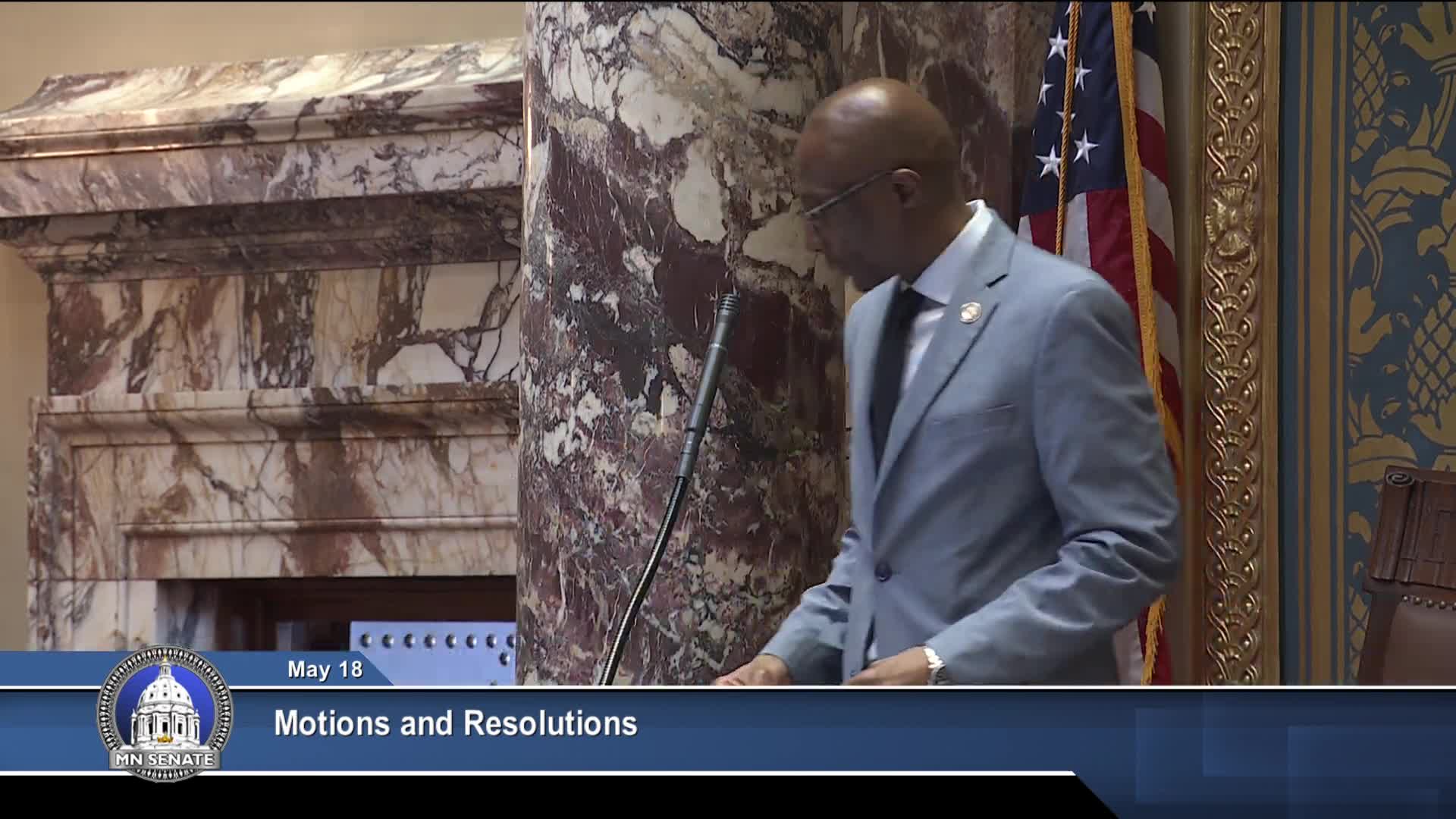Senate reallocates funds to pay unemployment insurance for hourly school workers, 44-23
Get AI-powered insights, summaries, and transcripts
Subscribe
Summary
The Senate approved House File 1143 on May 18, using a cancellation of funds from the Northern Lights Express project to bolster the unemployment insurance account that reimburse school districts for summer UI costs for hourly workers. The bill passed after debate and multiple failed and withdrawn amendments.
The Minnesota Senate on May 18 approved House File 1143 to provide funding for unemployment insurance costs for hourly school employees, including bus drivers, nutrition staff and educational assistants. The measure passed 44-23 after floor debate that focused on funding source and long-term sustainability.
Senator McEwen, who presented the bill, said the measure cancels approximately $77.2 million previously allocated to the Minneapolis-to-Duluth Northern Lights Express passenger rail project and uses the money to reimburse school districts for summer unemployment costs after the legislature made those hourly workers eligible for unemployment in 2023. McEwen described the change as correcting “a decades long wrong” for predominantly female and often lower-paid school workers.
Supporters emphasized the bill’s immediate impact on families and school staffing. Senator McQuaid, among others, described the bill as a lifeline for people who often “work two or three jobs to get by” and said unemployment benefits provide summer wage replacement that helps employees return in the fall. Senator McKeown urged a yes vote and said she had heard directly from bus drivers and school staff who report improved retention with the benefit in place.
Opponents criticized the funding method and the use of one-time transfers to finance an ongoing mandate. Senator Rehrig offered an alternative amendment (A3) that would reallocate money differently and set longer-term education-finance targets; that amendment was discussed but the body ultimately proceeded with the underlying bill. Senator Eric proposed a sunset amendment (A5) to phase the one-time UI payment out on Sept. 10, 2028; McEwen and others urged rejection of the sunset, noting federal compliance and equity issues, and the sunset amendment failed on a roll call, 32-35.
Floor debate included a sustained policy argument about whether the long-term fix should come from local levies, state general-fund taxes or new revenue from wealthier taxpayers. Senator McEwen framed the choice as one of priorities: “The answer is not making local people pay more property taxes. The answer is taxing the rich,” she said during floor remarks.
Supporters said the reallocation will stabilize districts struggling with the added UI costs and help sustain summer programs that depend on hourly staff. Several senators described anecdotal evidence from districts that retention of bus drivers and seasonal staff improved after eligibility for unemployment was restored.
On third reading the secretary closed the roll: 44 ayes and 23 noes. The bill passed and the title was agreed to. Sponsors and some opponents agreed the funding solution is a one-time move that will require further discussion about long-term revenue and program design; several senators urged continued work over the summer and in conference negotiations.
Votes at a glance - House File 1143 — Final passage: approved, 44 ayes, 23 noes. - A3 (Rehrig) — Substitute amendment to change allocations and create a student basic allowance: discussed, not adopted as presented (considered during floor debate). - A5 (Eric) — Sunset the UI reallocation on Sept. 10, 2028: failed, 32 ayes, 35 noes.
Ending: Backers said they will seek longer-term revenue options and administrative fixes in upcoming budget and committee work so districts and hourly school workers have a sustainable funding structure.
